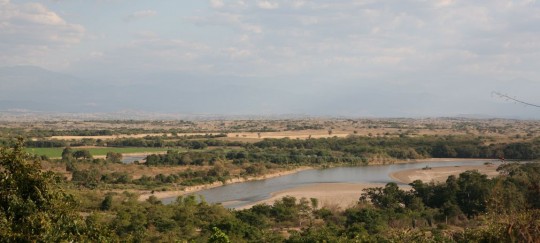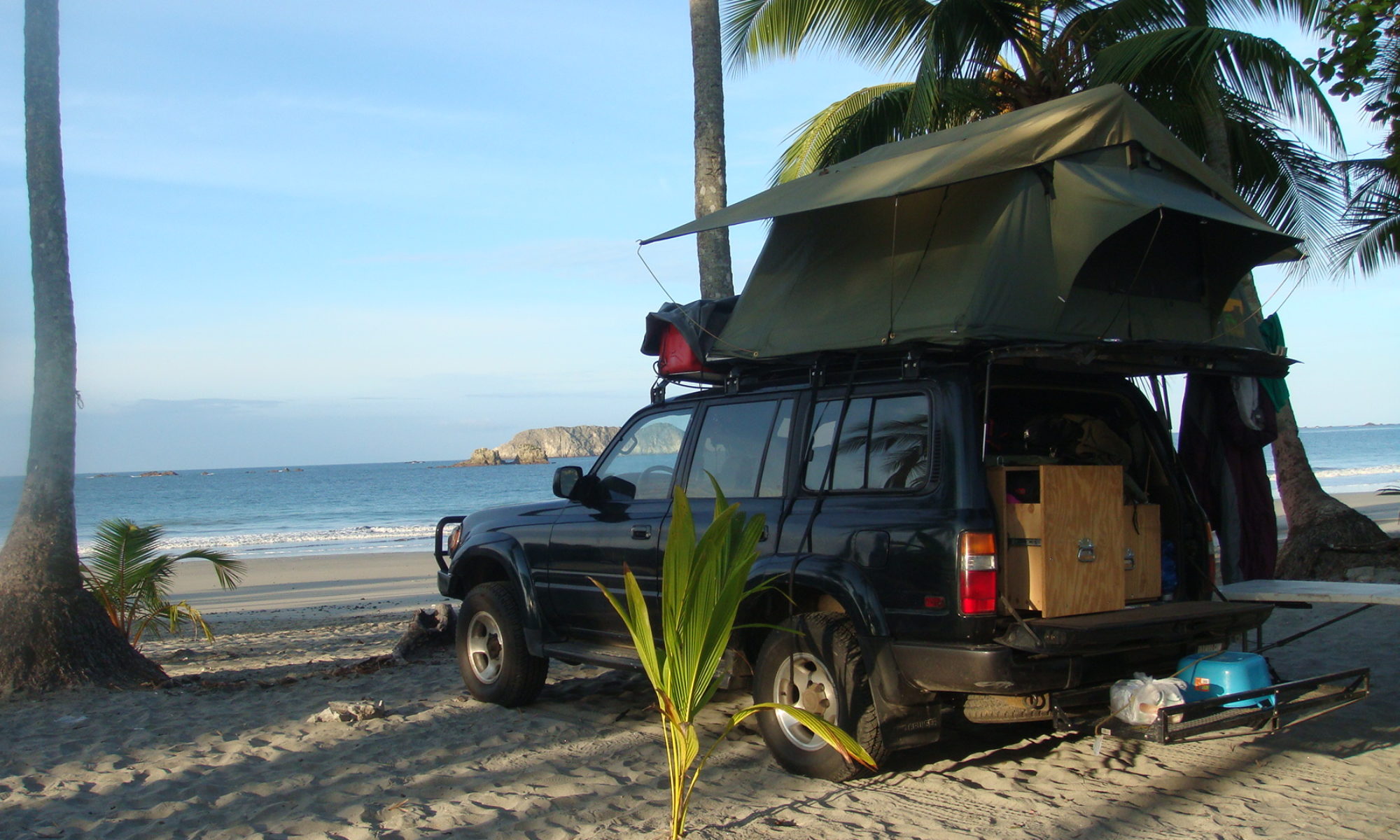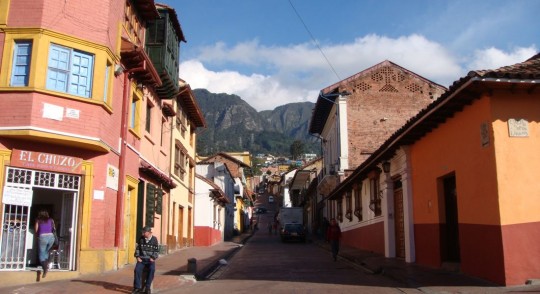
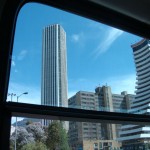

Bogota is the third-highest capital in South America. In the upcoming weeks, we will visit the highest – La Paz, Bolivia – and the second highest – Quito, Ecuador.
We arrived in the city Thursday afternoon, and decided to stay until Sunday. Unfortunately Frank – who we were coming to visit – was dispatched to Haiti to cover the events. We were still able to take advantage of his hospitality, and settled in the AP bureau, located in the northern part of the city, an upscale residential and business area.
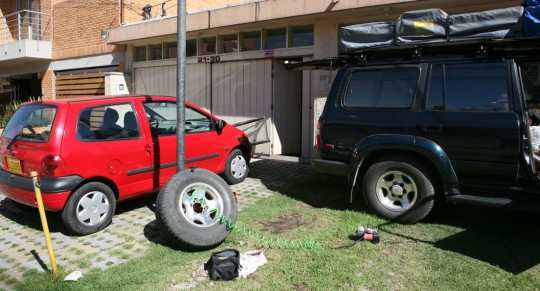
The same night, as well as Friday night, we went out in the Zona Rosa, a neighborhood where you can find upscale watering holes as well as outlet where highlights of American cooking such as McDonalds and TGI Fridays can be found.
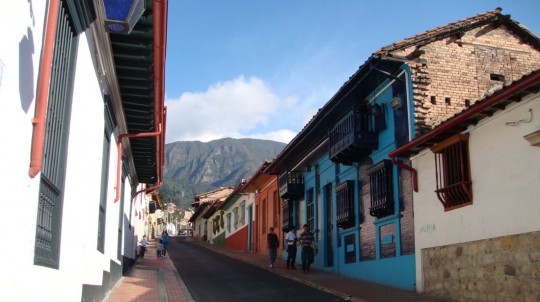
We spent the weekend in the old part of the city, called La Candelaria, a quarter of restaurants, churches and museums.
The city is bordered by a mountain range on the east, and has grown along the north-south axis, the south part being the lowest income area. At night, temperatures drop under 50F (9C).
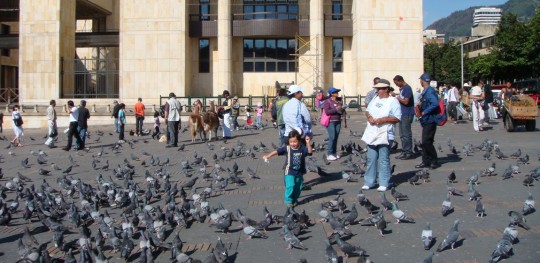
In the old city, we visited the Plaza de Bolivar, and went east deep into La Candelaria and its museums, my favorite being the Botero Donation. The museum features paintings from the Colombia most famous artist as well as works from its European counterparts.
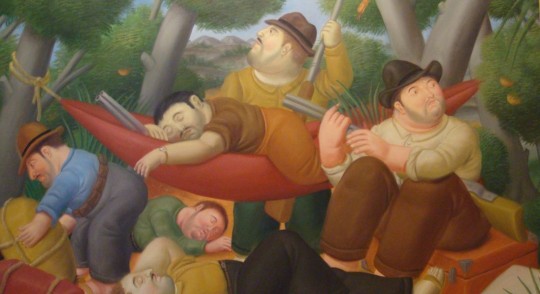
We continued our exploration of the city and visited the Iglesia de San Agustin, a necessary stop in my mind, even if not mentioned in guidebooks, with it’s beautiful paintings (sorry, no pictures allowed).
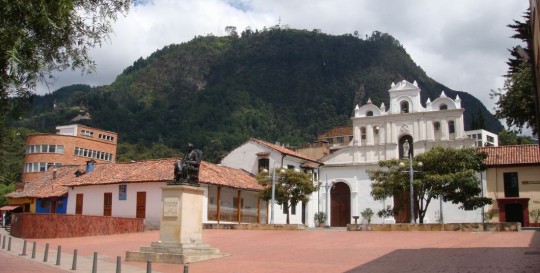
On Saturday, we went up to the Cerro de Monserrate, a church overlooking Bogota, accessible only via cable car and funicular. The view of the city from the 3,160m-high (10,400 ft) peak is splendid and worth the detour.
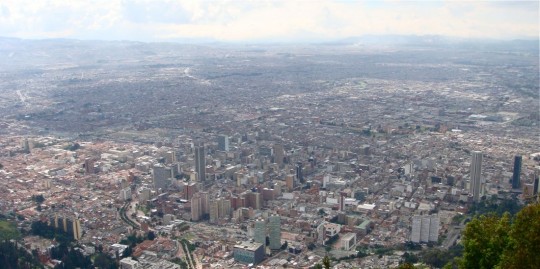
It was also nice also to stroll along Carrera 7, the main shopping street of the city, bordered by more modern buildings.
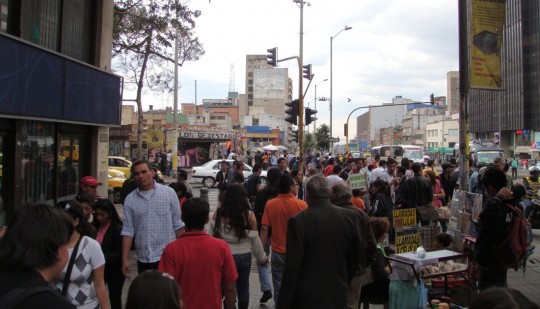
Like Cartagena, Bogota, with no shortage of cultural and leisure venues, looks to me like a city one could live in. What a contrast with cities in Central America, which seem in many ways more exotic. So far, the violent reputation of the country seems to be behind, and Colombia would be an ideal touristic destination, especially if you can spend at least two weeks exploring beaches and mountain ranges.
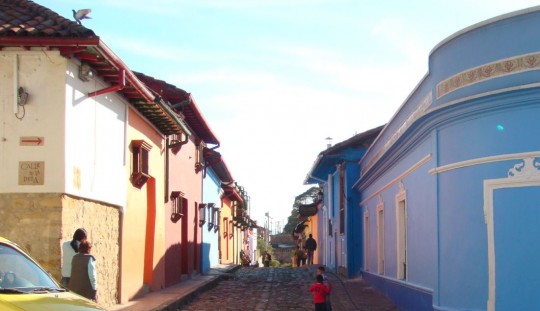
We left Bogota on the Sunday morning, and continued on our way south to Neiva.
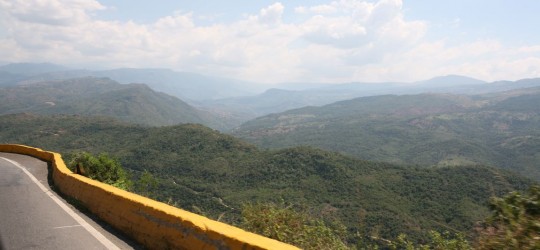
At the end of the day, as we were getting closer to the city, we stopped at a farm where people were nice enough to let us spend the night. We heated up tamales, and went to sleep with our best friends, the mosquitoes.
